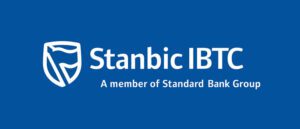
Presidential aide urges CBN to reduce number of BDCs operators by 95%
Nigerian Presidential Adviser on Economic Affairs Tope Fasua has urged the Central Bank of Nigeria (CBN) to reduce the number of bureau de change (BDC) operators in the country by 95 percent, from over 5,000 to about 200.
Fasua, a leading economist and chief executive officer of Global Analytics Consulting, made the call at an economic policy event organised by the Abuja Chamber of Commerce and Industry, with the theme, “Unification of foreign exchange and the effect of fuel subsidy removal on the business community.”
He said that the high number of BDCs makes it difficult for the CBN to supervise them, and that this leads to irregularities in the forex market.
“We need to do some structural reforms. For example, I believe we should reform the BDCs’ sector, make them stronger. You can’t manage over 5,000 BDCs selling money on the streets, it is not normal,” Fasua said.
He added that the CBN should incentivise the BDC sector and banks to provide forex to Nigerians more quickly.
“If we can do the structural reforms in the BDCs sector and the banks and supervise them well, the CBN with the reserves that we have can incentivise that sector, allowing people to get the money much quicker,” Fasua said.
He also called for the definition of the illegal forex market, in order to achieve stability in the official market.
“You have to define the illegal market and by then, we will be able to find stability,” Fasua said.
Buttressing his points, while speaking on the sidelines of the event, the presidential adviser said, “We cannot manage 5,000 BDCs, maybe we should be looking at 100 or 200. In the United Kingdom as a tourism destination, they have 145 BDCs the last time I checked. In the UAE they have 130.
“So what are we doing with 5,000 BDCs? You will never be able to supervise them. How many staff would you need to look at their returns and check them? Therefore, you need large and well-established BDCs, as well as banks, to be able to fulfill the needs of the people. And then the government can be able to incentivise that market.”
Fasua’s call comes at a time when Nigeria is grappling with a foreign exchange crisis. The naira has depreciated sharply against the US dollar in recent months, and businesses are struggling to access forex.
The CBN has taken a number of measures to address the forex crisis, including restricting the sale of forex to BDCs. However, these measures have not been very effective so far.
It remains to be seen whether the CBN will heed Fasua’s call to reduce the number of BDCs. However, his proposal is worth considering, as it could help to improve the efficiency and transparency of the forex market.



